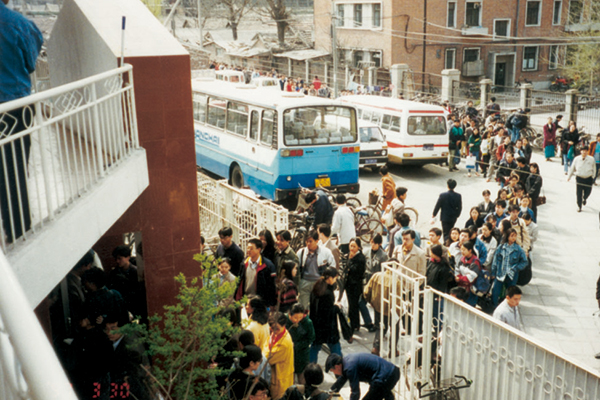The language of success
By Xing Wen | China Daily | Updated: 2018-11-14 07:49

Upgrade in resources
With the tremendous enhancement of social and economic development in the country over the past 40 years, English-language learning materials have become more enriched and the ways in which people learn English have been transformed.
In August 1978, at a two-week symposium on foreign-language education held in Beijing, Liao Chengzhi, the then vice-chairman of the Standing Committee of the National People's Congress, addressed the significance of cultivating qualified people who were good at foreign languages to support the country's development. In the same year, the reform and opening-up policy came into effect across the country. All this sparked great enthusiasm for English learning among legions of young Chinese people.
Among them was Zhou Chenggang, the current New Oriental CEO, who chose English as his major when he enrolled at Suzhou University in 1980.
"We wanted to know more about the outside world, and the language just offered us a window," Zhou recalls. "I used to accost foreigners on the streets of Suzhou, seizing each chance to practice my English."
Students used to form long queues outside Xinhua bookstores to buy a Chinese-English dictionary, Zhou says, and apart from reading English magazines and novels, some of his schoolmates even used shortwave radios to tune into overseas programs from the BBC or Voice of America.
"It would delight us when we could understand some of the content," he says. "The access we had to learning resources was really limited."
In 1982, Follow Me, a series of crash-course English-language programs produced by the BBC hit Chinese TV screens, which provided a refreshing audiovisual method of learning for Chinese students of English.
After four years of study in Suzhou, Zhou became an English teacher at the university and spent the following 11 years there. In 1996 he resigned and decided to further his studies in Australia after noticing the language gap between himself and native English speakers.
"I found that what I learned from textbooks was not so practical for use in daily life. For instance, when I was chatting with someone, I stuck to using 'I beg your pardon?' every time when I failed to hear something clearly, just as the textbooks taught me," he says. "I also found myself short of critical thinking skills compared to my foreign counterparts."
Zhou spared no effort in his studies, and advanced his English by attending lectures, talking to classmates with a wide range of accents and watching local TV shows. After two years of graduate studies in mass communication at Macquarie University, he became a reporter for the BBC. Zhou later decided to return to China and joined New Oriental in 2000.
























